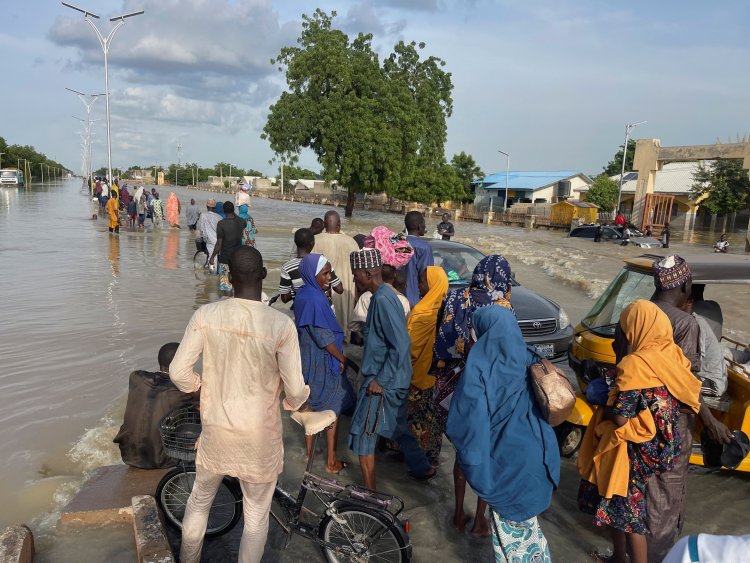Nigeria Faces Crisis as Borno State Floods Hit Hard

Residents in Nigeria's flood-hit northeastern Borno state are struggling to access medical care as aid agencies warned of a humanitarian crisis and outbreak of waterborne diseases following the worst flooding to hit the region in three decades.
More than 30 people have been killed by the floods, which authorities say affected about 1 million people, most who are housed in camps without food and clean water.
Floods last week hit Borno, the birthplace of Boko Haram militants, when a dam burst its walls following heavy rainfall that has also caused floods in Cameroon, Chad, Mali and Niger, all part of the Sahel that usually receive little rains.
The floods in West Africa come at a time of flooding in Europe after days of torrential rain that caused rivers to burst their banks in several parts of the region.
Mathias Goemaere, a field coordinator for Medecins Sans Frontieres said even before the floods, residents in Borno were struggling with malnutrition, following years of an Islamist insurgency that has killed thousands and displaced 2 million.
"They are exposed to their environment, so what do we see? A lot of waterborne diseases, diarrhea, diarrhoeal diseases, you've got malaria. Malaria is around with a lot of mosquitoes. So a lot of people, because of malnutrition, are immunosuppressed, which makes them more susceptible to diseases,'' Goemaere said.
Nigeria's government has warned of rising water levels in the Benue and Niger rivers, which could lead to flooding in the oil-producing Niger Delta region.
The United Nations World Food Programme is working to provide hot meals to 50,000 of the worst affected people in Borno and says it needs $148 million to support flood-affected people in Maiduguri and other food insecure people in all of the northeast for the next six months.















